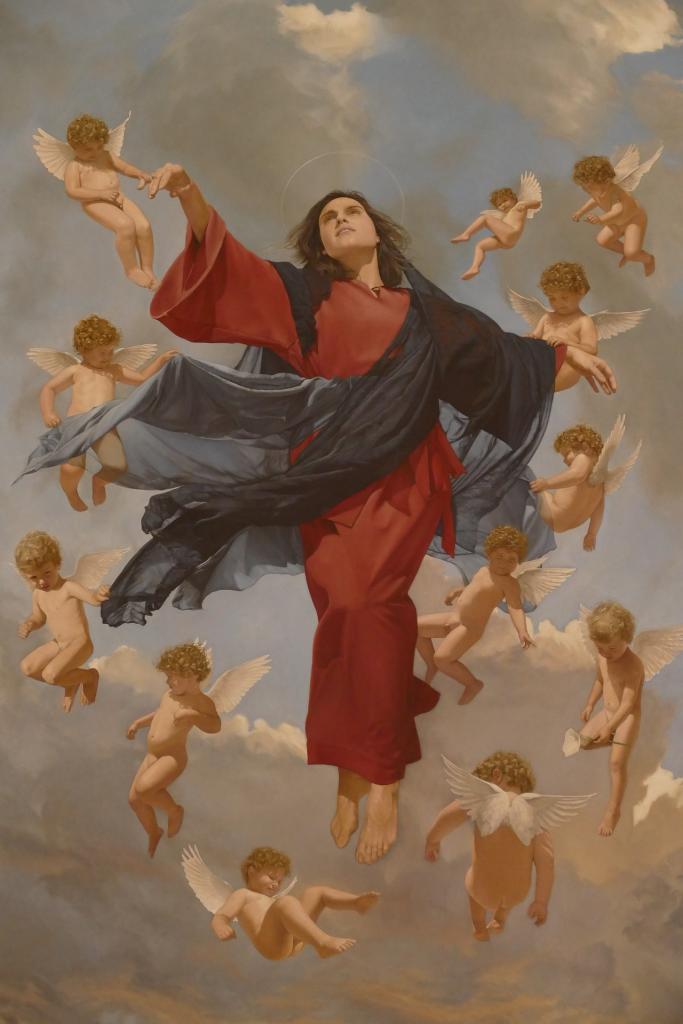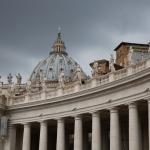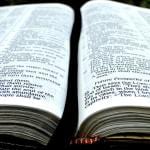
When it comes to teachings about the Virgin Mary, non-Catholic Christians are usually quite apprehensive of these seemingly wild claims that are not explicitly mentioned in the Bible. This is largely because they adhere to an authoritative system called Sola Scriptura, which is Latin for ‘Bible Alone.’ Given the tumultuous history of the Church leading up to the Protestant Reformation and to the modern era, it is completely understandable why those who follow Christ would want to maintain a high standard of biblical authenticity reflected in Church ritual and doctrine. But what seems to be a byproduct of the Bible-alone mentality of the last 500 years is the flippant dismissal of anything that isn’t explicitly mentioned in the Scriptures. Though it is worth noting that even the Bible itself quotes,
“But there are also many other things which Jesus did; were every one of them to be written, I suppose that the world itself could not contain the books that would be written.”
— John 21:25 RSV
This passage itself seems to imply the Bible in its entirety is only a small glimpse of what may be possible, namely with what Jesus had done during His earthly life. If God is omnipotent, then there is nothing on this earth that could limit Him — not the Sacraments, nor the Church or even the Bible itself. And yet, all of these things are accepted by Christians as God-given and inspired. This leads me to believe that Christians in general have a habit of compartmentalizing their idea of how God thinks by claiming if something isn’t in the Bible, then it’s not true!
But then again, who are we to decide how God thinks? If God is truly sovereign (as a Calvinist would say), then every one of His created beings is subject to His sovereignty, including the role of the Virgin Mary.
The Assumption of Mary is a Catholic dogma that claims the Virgin Mary was carried up into Heaven at the end of her life on earth. 1 The first thing that often comes to mind regarding Mary’s assumption is that it sounds like she ascended into Heaven in the same manner Jesus did. This is often a cause of great criticism from Protestants, and where the importance of context comes in. The difference between the Ascension and the Assumption is Jesus went up to Heaven by His own power (since He is God). In Mary’s case, she did nothing out of her own power, but rather it was God who carried her up into Heaven.
It is important to note that the Bible is not clear on Mary’s fate. The consensus among Protestant Christians is all who are born of Adam have sinned, fall short of the glory of God and are subject to die once before facing judgment. 2 Granted this, non-Catholic Christians generally ‘assume’ Mary had died like every other human born in Original Sin. Pun intended.
However, the Bible refers to a few persons who have been said to have been taken up into Heaven. Elijah was carried off by a flaming chariot into Paradise, which would have been willed by the power of God. 3 Enoch was supposedly taken up and had not tasted death. 4 The Apostle Phillip was believed to have been snatched away from the earth. 5 Enoch, Elijah and Phillip were faithful servants of God, yet were still born in Original Sin. Given what the Bible reveals about these people and the lack of scriptural clarity, it is possible that Mary could have been raptured.
In my days as a Protestant, I have noticed Evangelicals are generally more inclined to give honor to patriarchs of the Old Testament as opposed to Mary as the Mother of Jesus. It is especially evident when people claim that naming something after Mary such as a church building, institution or event is considered elevating her above Jesus; yet will use names like Elijah-Fest, Calvin University (in honor of Protestant Reformer John Calvin) or First Baptist Church (arguably a homage to John the Baptist). Provided that many non-Catholic Christians seem to have no problem honoring Old Testament patriarchs, I think it’s worth pondering whether giving honor to Mary might stem from a misogynist view of women in the Bible. I think there’s an underlying fear of giving any sort of recognition of a woman living faithfully. Giving honor to the mother of Jesus is vehemently condemned among Protestant Christians under the guise of giving glory to God alone. This unfortunately is at odds with the Jewish commandment of honoring our father and mother 6 in addition to the the biblical verse, “…all generations shall call me blessed.” 7
As far as extra-biblical accounts of Jesus or the fate of the first Apostles, non-Catholic Christians generally don’t seem to have a problem accepting the possibility of them being true. Jesus is said to have taken up clay from the ground and created living birds during His youth in the apocryphal Infancy Gospel of Thomas. It is also generally accepted among Christian scholars that the Apostle Peter was martyred in Rome by being crucified upside-down. Saint Andrew is believed to have been crucified on an X-shaped cross in the city of Patras. These accounts of Peter and Andrew are not mentioned in Scripture, but are widely accepted by scholars and theologians as truth based on historical account, relics and tradition. Mary, on the other hand, did not have any relics associated with her from the time on earth. Some have theorized that the body of Mary might have been hidden or stolen by relic hunters. But since there appears to be no historical documentation over such a possibility, perhaps a supernatural occurrence should not be so readily dismissed?
It is also worth mentioning the Eastern Orthodox Church upholds a similar belief as the Assumption called the Dormition of the Mother of God. 8 The major difference is the Dormition is defined as Mary having ‘fallen asleep’ or died an earthly death before being taken up body and soul into Paradise. While this account is not mentioned in the Bible, it is largely derived from written documentation by the Early Church Fathers. In one instance, Saint John of Damascus wrote in the apocryphal work The Account of the Falling Asleep of the Holy Mother of God:
“St. Juvenal, Bishop of Jerusalem, at the Council of Chalcedon (451), made known to the Emperor Marcian and Pulcheria, who wished to possess the body of the Mother of God, that Mary died in the presence of all the Apostles, but that her tomb, when opened, upon the request of St. Thomas, was found empty; wherefrom the Apostles concluded that the body was taken up to heaven.” 9
The Catholic dogma on the Assumption is silent on whether or not Mary had died prior to her acceptance into the heavenly realm. Some have argued that she couldn’t have perished if she had lived a sinless life, which relates to the dogma of her Immaculate Conception (though that is a topic worthy of its own article). But regardless of whether or not Mary’s body perished, the outcome of the Assumption and the Dormition remains the same. They both imply that Mary holds a special position in Paradise with her son, which leads me to reference my other article: ‘In Defense of Mary: Mediatrix & Queen of Heaven?’
While most non-Catholic Christians would claim believing in the Assumption of Mary is not a litmus test for salvation, I would argue it has more to do with whether Jesus is true to His word. Believing her acceptance into the glory of Paradise is viewed by some Christians as the symbol of Christ’s promise to all who endure through faith that they too will be received into Paradise. If Jesus meant what He said regarding the resurrection of the body and the life everlasting 10 , how little hope is there for us if it weren’t true in the case of His own mother?
Though I think believing Mary is enjoying heavenly peace with her Son is a safe assumption.
REFERENCES:
1 – Wikipedia: https://en.m.wikipedia.org/wiki/Assumption_of_Mary
2 – Romans 3:23, 5:12, 6:23; 1 Corinthians 15:22, Hebrews 9:27-28
3 – 2 Kings 2
4 – Genesis 5:21-24
5 – Acts 8:39
6 – Exodus 20:12, Ephesians 6:2,
7 – Luke 1:48
8 – Wikipedia: https://en.wikipedia.org/wiki/Dormition_of_the_Mother_of_God
9 – Wikipedia: http://www.newadvent.org/fathers/0832.htm
10 – John 14:19












